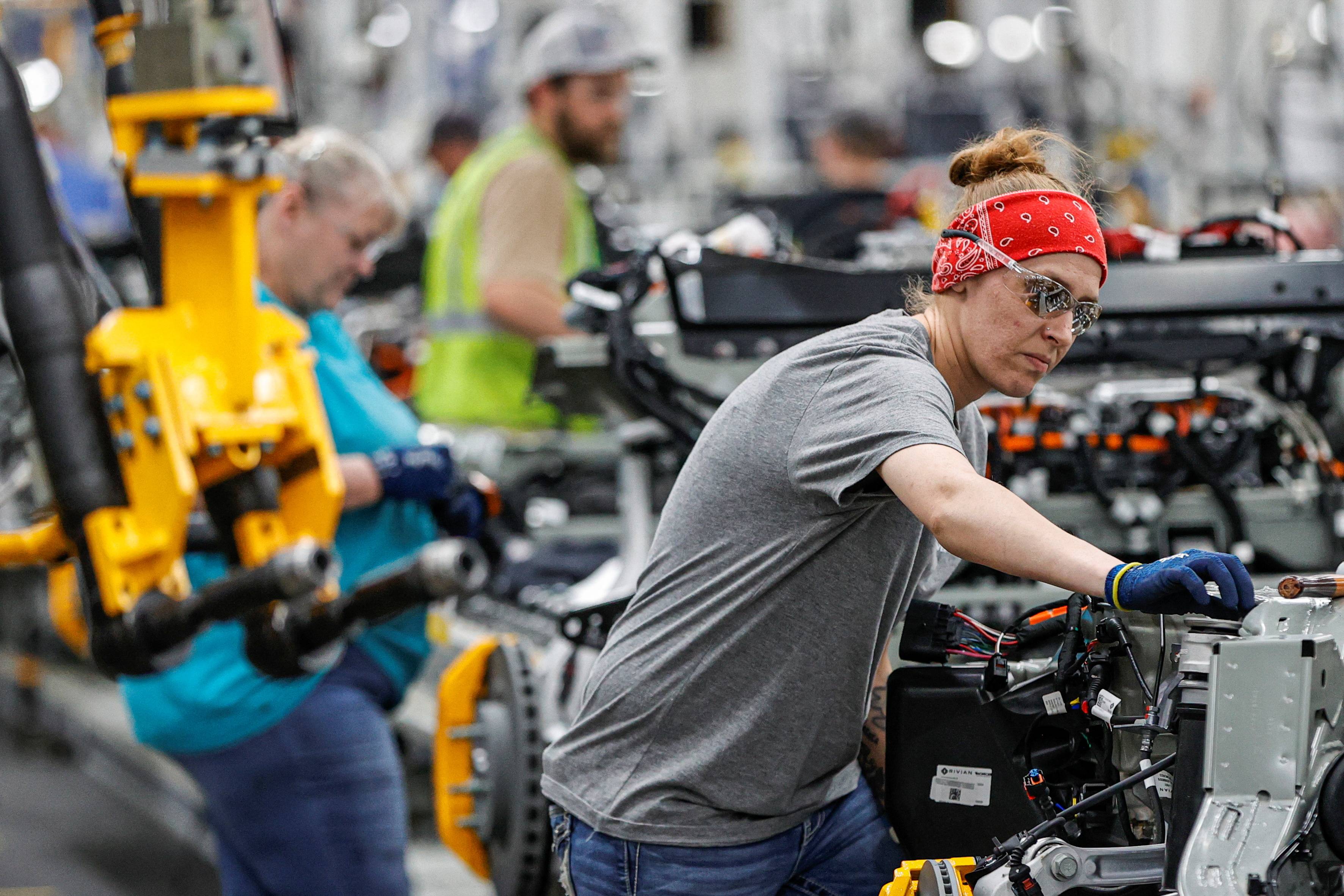
Master's in supply chain management
A Master's degree in supply chain management can help you advance your career in many ways. You can be more competitive in a highly-paying job, for instance. To learn more about what this type of degree entails, consider looking at actual job listings. You can see the types of degree that hiring managers are seeking, along with the average salary for the position in your locality.
MIT's Center for Transportation and Logistics offers a Master's degree program in supply chain management. This ten-month program is designed for early career supply chain professionals. It starts in August and ends in May. Those who are interested in pursuing a research-oriented program may want to consider the blended program option.

Many supply chain management programs offer a traditional classroom experience. However, online programs are more flexible. Many online programs require students to complete capstone projects. This can include research projects, mock businesses plans, internships or real-world project experience.
Post-graduate diploma in supply chain management
The Post-graduate Diploma in Supply Chain Management - PGDipSCM is a professional qualification in Supply Chain Management. It includes seven modules. Each module includes an assignment that contributes towards the development or execution of an organizational improvement project. Students can move on to the Master in Supply Chain Management after completing the diploma. Students must complete a dissertation to be awarded the MSc.
The Post-graduate Diploma in Supply Chain Management programme is designed to increase the knowledge and skills of professionals in order for them to maximize their profitability. In an era of mass customization and increasing customer demands, companies are forced to focus on their internal operations in order to meet the demands of an increasingly demanding customer base. A well-managed Supply Chain Management Post-graduate diploma is essential to the success and growth of any business.
Cost of a Supply Chain Management Degree
A supply chain management degree may cost you a lot. Many factors affect the price of an online master's level in this field. The most important factor is where you live. There are many colleges that charge higher tuition if you're not in the same state as you, but some schools offer flat tuition rates. Another important factor is the costs associated with technology. Online degrees can have additional costs like a technology fee. This may increase the total tuition. A supply chain management online degree costs vary depending on how many credits are completed. A full-time program may cost between $36,000 and $64,000.

Your employer may offer financial assistance, which could help you find a supply-chain management degree at a discounted price. Scholarships and grants can also help you pay for your degree. It is important to choose a program that meets your needs and to figure out how to pay for it. Many students prefer to study online so that they can continue their education while working.
FAQ
Can certain manufacturing steps be automated?
Yes! Since ancient times, automation has been in existence. The Egyptians created the wheel thousands years ago. Robots are now used to assist us in assembly lines.
Robotics is used in many manufacturing processes today. They include:
-
Automation line robots
-
Robot welding
-
Robot painting
-
Robotics inspection
-
Robots that create products
There are many other examples of how manufacturing could benefit from automation. For instance, 3D printing allows us make custom products and not have to wait for months or even weeks to get them made.
What are the responsibilities for a manufacturing manager
The manufacturing manager should ensure that every manufacturing process is efficient and effective. They should be alert for any potential problems in the company and react accordingly.
They must also be able to communicate with sales and marketing departments.
They should also be aware of the latest trends in their industry and be able to use this information to help improve productivity and efficiency.
What does warehouse refer to?
A warehouse or storage facility is where goods are stored before they are sold. It can be indoors or out. In some cases it could be both indoors and outdoors.
What skills is required for a production planner?
A production planner must be organized, flexible, and able multitask to succeed. It is also important to be able communicate with colleagues and clients.
What are the jobs in logistics?
There are many types of jobs in logistics. Some of them are:
-
Warehouse workers - They load and unload trucks and pallets.
-
Transportation drivers – They drive trucks or trailers to transport goods and perform pick-ups.
-
Freight handlers - They sort and pack freight in warehouses.
-
Inventory managers: They are responsible for the inventory and management of warehouses.
-
Sales representatives - They sell products to customers.
-
Logistics coordinators: They plan and manage logistics operations.
-
Purchasing agents – They buy goods or services necessary to run a company.
-
Customer service representatives - Answer calls and email from customers.
-
Shipping clerks - They process shipping orders and issue bills.
-
Order fillers - They fill orders based on what is ordered and shipped.
-
Quality control inspectors (QCI) - They inspect all incoming and departing products for potential defects.
-
Others - There are many types of jobs in logistics such as transport supervisors and cargo specialists.
What are the differences between these four types?
Manufacturing is the process of transforming raw materials into useful products using machines and processes. It involves many different activities such as designing, building, testing, packaging, shipping, selling, servicing, etc.
Statistics
- Many factories witnessed a 30% increase in output due to the shift to electric motors. (en.wikipedia.org)
- In 2021, an estimated 12.1 million Americans work in the manufacturing sector.6 (investopedia.com)
- In the United States, for example, manufacturing makes up 15% of the economic output. (twi-global.com)
- It's estimated that 10.8% of the U.S. GDP in 2020 was contributed to manufacturing. (investopedia.com)
- According to the United Nations Industrial Development Organization (UNIDO), China is the top manufacturer worldwide by 2019 output, producing 28.7% of the total global manufacturing output, followed by the United States, Japan, Germany, and India.[52][53] (en.wikipedia.org)
External Links
How To
How to Use Lean Manufacturing for the Production of Goods
Lean manufacturing (or lean manufacturing) is a style of management that aims to increase efficiency, reduce waste and improve performance through continuous improvement. It was created in Japan by Taiichi Ohno during the 1970s and 80s. He received the Toyota Production System award (TPS), from Kanji Toyoda, founder of TPS. Michael L. Watkins published the first book on lean manufacturing in 1990.
Lean manufacturing is often described as a set if principles that help improve the quality and speed of products and services. It emphasizes reducing defects and eliminating waste throughout the value chain. Lean manufacturing is also known as just in time (JIT), zero defect total productive maintenance(TPM), and five-star (S). Lean manufacturing eliminates non-value-added tasks like inspection, rework, waiting.
Lean manufacturing can help companies improve their product quality and reduce costs. Additionally, it helps them achieve their goals more quickly and reduces employee turnover. Lean manufacturing is a great way to manage the entire value chain including customers, suppliers, distributors and retailers as well as employees. Lean manufacturing can be found in many industries. For example, Toyota's philosophy underpins its success in automobiles, electronics, appliances, healthcare, chemical engineering, aerospace, paper, food, etc.
Five basic principles of Lean Manufacturing are included in lean manufacturing
-
Define Value: Identify the social value of your business and what sets you apart.
-
Reduce Waste – Eliminate all activities that don't add value throughout the supply chain.
-
Create Flow - Ensure work moves smoothly through the process without interruption.
-
Standardize and simplify – Make processes as repeatable and consistent as possible.
-
Build Relationships - Establish personal relationships with both internal and external stakeholders.
Although lean manufacturing isn't a new concept in business, it has gained popularity due to renewed interest in the economy after the 2008 global financial crisis. To increase their competitiveness, many businesses have turned to lean manufacturing. In fact, some economists believe that lean manufacturing will be an important factor in economic recovery.
Lean manufacturing is becoming a popular practice in automotive. It has many advantages. These include improved customer satisfaction, reduced inventory levels, lower operating costs, increased productivity, and better overall safety.
Lean manufacturing can be applied to almost every aspect of an organization. This is because it ensures efficiency and effectiveness in all stages of the value chain.
There are three main types of lean manufacturing:
-
Just-in-Time Manufacturing (JIT): This type of lean manufacturing is commonly referred to as "pull systems." JIT means that components are assembled at the time of use and not manufactured in advance. This approach reduces lead time, increases availability and reduces inventory.
-
Zero Defects Manufacturing: ZDM ensures that no defective units leave the manufacturing plant. You should repair any part that needs to be repaired during an assembly line. This is true even for finished products that only require minor repairs prior to shipping.
-
Continuous Improvement (CI), also known as Continuous Improvement, aims at improving the efficiency of operations through continuous identification and improvement to minimize or eliminate waste. Continuous improvement involves continuous improvement of processes and people as well as tools.